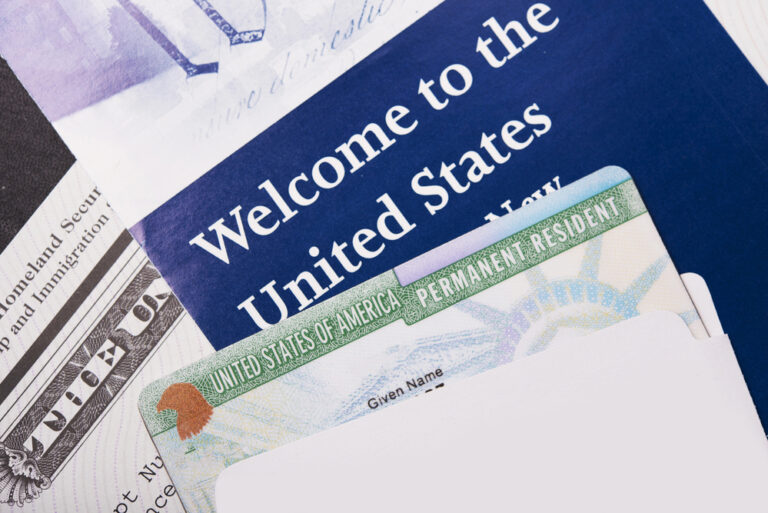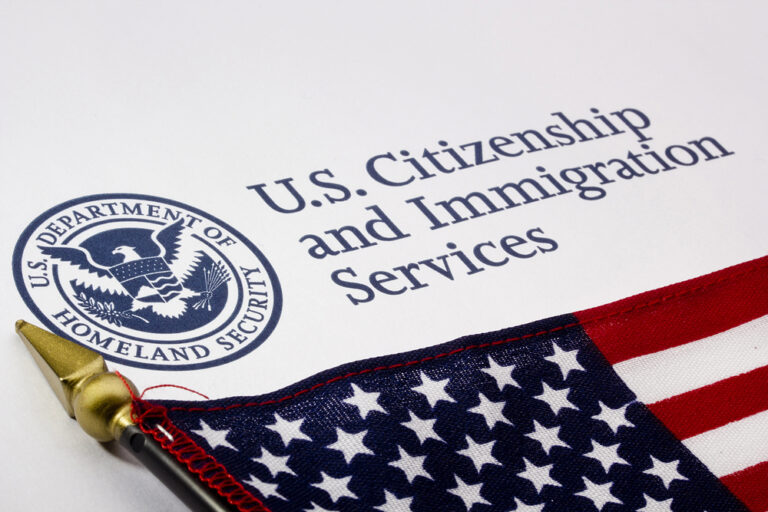Marriage and citizenship are two fundamental concepts that hold significant importance in society, intertwining in various legal, social, and personal life aspects. Understanding the relationship between these two concepts is crucial for comprehending the rights, responsibilities, and implications of the union of individuals within a legal and social framework.
Definition of marriage
Traditionally understood as the formal union between two individuals, marriage carries profound cultural, religious, and legal significance. It represents a commitment and partnership between spouses, typically characterized by mutual love, support, and shared responsibilities. While the definitions and rituals surrounding marriage may vary across cultures and legal jurisdictions, its essence remains the creation of a legally recognized bond between two people.
Definition of citizenship
Citizenship refers to the legal status granted to individuals by a nation-state, entitling them to certain rights, protections, and responsibilities within that country’s borders. It signifies belonging to a particular political community, with individuals enjoying privileges such as voting rights, access to social services, and protection under the law. Citizenship can be acquired through various means, including birth, descent, naturalization, or marriage to a citizen of the country.
The connection between marriage and citizenship
- The connection between marriage and citizenship is multifaceted, extending beyond mere legal recognition. Marriage often acts as a gateway to citizenship for non-citizen spouses, granting them access to legal status and rights within their partner’s country. Additionally, marriage can influence individuals’ citizenship status, impacting eligibility for benefits, residency rights, and the ability to sponsor family members for immigration.
- Moreover, marriage is intricately tied to broader societal norms and expectations concerning citizenship, family, and belonging. Marital status can shape perceptions of an individual’s commitment to their community and may affect their social status, access to resources, and engagement in civic life. Understanding the complexities of this relationship is crucial for navigating the intertwined rights, responsibilities, and implications associated with marriage and citizenship.
Historical Perspectives
A. Evolution of Marriage and Citizenship Laws
Throughout history, the evolution of marriage and citizenship laws has been shaped by changing societal norms, cultural practices, and legal frameworks. Early civilizations often regarded marriage as a means of forming alliances, securing property rights, and ensuring the continuity of lineage. On the other hand, citizenship was initially tied to membership in tribal or city-state communities, with rights and privileges afforded to those deemed as members.
Over time, as societies became more structured and centralized, marriage and citizenship laws became codified and regulated by governing authorities. Legal definitions of marriage varied across regions and cultures, with some societies permitting polygamy or arranged marriages while others favored monogamous unions based on romantic love. Similarly, citizenship criteria evolved based on birthright, lineage, or allegiance to a ruling authority.
The modern era witnessed significant shifts in marriage and citizenship laws, particularly with the rise of nation-states and the emergence of democratic principles. Legal reforms aimed to establish equality and individual rights, leading to changes in marriage regulations, such as the recognition of interracial and same-sex marriages. Citizenship laws also underwent reforms, emphasizing principles of jus soli (birthright citizenship) and jus sanguinis (citizenship by descent).
B. Cultural and Societal Influences on the Relationship Between Marriage and Citizenship
Cultural and societal influences have been pivotal in shaping the relationship between marriage and citizenship. In many cultures, marriage is a legal contract and a social institution deeply rooted in tradition, religion, and familial expectations. The concept of citizenship is similarly influenced by cultural norms, with notions of belonging, identity, and loyalty often tied to ethnic, linguistic, or religious affiliations.
The intertwining of marriage and citizenship reflects broader cultural attitudes toward family, gender roles, and community. Traditional patriarchal societies may prioritize marital unions to preserve lineage and property rights, with citizenship rights often inherited through male descendants. In contrast, modern societies increasingly emphasize individual autonomy and gender equality, challenging traditional notions of marriage and citizenship.
Globalization has further influenced the relationship between marriage and citizenship, with increased mobility and cultural exchange shaping diverse forms of marital unions and citizenship arrangements. Transnational marriages, for example, may involve individuals from different countries seeking to navigate complex legal and bureaucratic processes to establish their marital and citizenship status.
C. Landmark Legal Cases and Legislative Milestones Shaping Marriage and Citizenship
Landmark legal cases and legislative milestones have played a crucial role in shaping the trajectory of marriage and citizenship laws. In many countries, legal battles for marriage equality have led to significant reforms, challenging discriminatory practices and expanding rights for marginalized groups. Key court decisions have overturned bans on interracial marriage, recognized same-sex marriage, and affirmed the rights of immigrants to sponsor their spouses for citizenship.
Legislative initiatives have also contributed to the evolution of marriage and citizenship laws, with lawmakers enacting reforms to address changing social attitudes and demographic trends. Policies governing immigration, family reunification, and citizenship acquisition have been subject to debate and reform, reflecting shifting priorities and values within society.
Overall, the historical perspectives on marriage and citizenship underscore the dynamic nature of these institutions, shaped by a complex interplay of legal, cultural, and societal factors. Understanding the historical context is essential for contextualizing contemporary debates and navigating the complexities of marriage and citizenship in a rapidly changing world.
Legal Aspects
- Rights and Responsibilities of Married Couples with Citizenship
Marriage grants couples various citizenship-related rights and responsibilities. This includes jointly sponsoring each other for citizenship or residency, accessing social benefits, and jointly inheriting property. However, these rights can vary by country. Couples may also have legal obligations such as financial support for each other and their dependents. Divorce or separation can impact citizenship status, affecting residency rights and benefits for non-citizen spouses.
- Impact of Marriage on Immigration and Citizenship Processes
Marriage is a key pathway for obtaining legal status in foreign countries through immigration. Spousal sponsorship programs are standard, allowing citizens or permanent residents to petition for their foreign-born spouses to immigrate and potentially gain citizenship. However, authorities impose strict regulations to prevent abuse, requiring extensive documentation and proof of the genuine relationship.
- Legal Considerations for Same-Sex Marriages and Citizenship Rights
Recognition of same-sex marriages and their citizenship implications vary worldwide. In jurisdictions legalizing same-sex marriage, couples often receive equal citizenship rights, such as immigration sponsorship and access to spousal visas. However, in regions where recognition is absent, same-sex couples may face hurdles in obtaining citizenship rights. Legal initiatives aim to mitigate these disparities, highlighting the necessity of understanding legal intricacies in navigating rights and responsibilities.
Societal Implications
Influence of Marital Status on Access to Citizenship Benefits
Marital status significantly influences access to citizenship benefits in many societies. Married individuals often have more accessible pathways to citizenship compared to unmarried individuals, as marriage can serve as a basis for acquiring legal residency and eventual citizenship. Spouses of citizens or permanent residents may have expedited naturalization processes and enjoy preferential treatment in terms of accessing social benefits and services.
Intersectionality: How Race, Ethnicity, Gender, and Socioeconomic Status Affect the Relationship Between Marriage and Citizenship
The intersection of race, ethnicity, gender, and socioeconomic status plays a critical role in shaping the relationship between marriage and citizenship. Minority groups, women, and those from lower socioeconomic backgrounds may face additional barriers in accessing citizenship benefits through marriage. Discriminatory policies and systemic inequalities can exacerbate disparities in marriage and citizenship rights, highlighting the need for intersectional approaches to address social inequities.
Cultural Attitudes Toward Marriage and Citizenship
Cultural attitudes toward marriage and citizenship vary significantly across societies, influencing perceptions of family, identity, and belonging. Traditional values and religious beliefs often shape cultural norms surrounding marriage, with certain cultures emphasizing familial lineage and marital stability. These cultural attitudes can impact individuals’ access to citizenship rights and societal expectations regarding marital roles and responsibilities.
Global Perspectives
Marriage and citizenship laws vary globally, reflecting diverse cultural, legal, and political contexts. Differences exist in eligibility criteria, recognition of same-sex unions, and procedures for acquiring citizenship through marriage. Comparative analysis sheds light on these variations. International treaties and agreements significantly shape the intersection of marriage and citizenship worldwide. Treaties addressing human rights, gender equality, and migration influence national marriage and citizenship rights policies. They promote principles like non-discrimination and family reunification, impacting legal frameworks across borders. Case studies of international marriages provide insights into marriage’s practical implications on citizenship rights. These cases reveal challenges couples encounter navigating different legal systems and cultural norms. They underscore the need for legal and policy reforms to address citizenship disparities.
Challenges and Controversies
- Debate Over Citizenship Rights for Spouses in Mixed-Status Marriages
Mixed-status marriages, where one spouse is a citizen or permanent resident and the other is not, often spark debates over citizenship rights. Issues such as spousal sponsorship, access to social benefits, and the risk of deportation can strain mixed-status marriages and prompt discussions about fairness and equity in citizenship policies.
- Legal and Ethical Dilemmas Surrounding Marriages of Convenience for Citizenship Purposes
Marriages of convenience entered solely to obtain citizenship or residency rights raise legal and ethical concerns. Authorities combat fraudulent marriages by implementing measures to verify the authenticity of relationships, but distinguishing genuine unions from sham marriages remains a challenge.
- Addressing Disparities in Access to Citizenship Based on Marital Status
Disparities in access to citizenship benefits based on marital status underscore broader societal inequalities. Efforts to address these disparities require comprehensive reforms addressing systemic barriers and ensuring equitable access to citizenship rights for all individuals, regardless of marital status.
Future Directions
A. Potential Changes in Marriage and Citizenship Laws
The evolving marriage and citizenship laws landscape may witness future reforms promoting inclusivity, equality, and human rights. Potential changes may include the recognition of diverse forms of partnerships, the streamlining of immigration processes, and the adoption of anti-discrimination measures in citizenship policies.
B. Emerging Trends in the Relationship Between Marriage, Citizenship, and Globalization
Globalization and increased mobility will likely shape the future relationship between marriage, citizenship, and globalization. Trends such as transnational marriages, digital nomadism, and virtual citizenship may challenge traditional notions of citizenship and require innovative policy responses.
C. Implications of Technological Advancements on the Intersection of Marriage and Citizenship
Technological advancements, such as blockchain technology and digital identity systems, may impact the intersection of marriage and citizenship by facilitating secure and transparent record-keeping. These innovations could streamline administrative processes, enhance data privacy, and improve accessibility to citizenship services.
Conclusion
Marriage and citizenship are deeply intertwined, shaping rights, responsibilities, and societal norms. To grasp the intricacies of this connection, one must consider legal, cultural, and socioeconomic factors. Recognizing these complexities is vital for fostering equality, safeguarding human rights, and mitigating societal disparities. Informed policy-making and advocacy are essential to guaranteeing fair access to citizenship rights for all individuals.
Seeking Legal Assistance?
Look no further than The Daniels Law Firm!
Specializing in various legal areas, including family law, immigration law, civil litigation, and more, Better Call Saad is your go-to source for expert legal advice and representation. Our team understands the unique challenges you may be facing and is committed to providing personalized solutions tailored to your specific needs. With a focus on client satisfaction and a proven track record of success, you can trust and advocate fiercely for your rights and interests. Contact us today to schedule a consultation and take the first step toward confidently resolving your legal matters.
Frequently ask questions:
What issues does family law cover?
Family law addresses matters like divorce, child custody, adoption, paternity, and domestic violence.
How can an immigration attorney help me?
An immigration attorney can assist with visas, green cards, citizenship, asylum, and deportation proceedings.
What types of cases fall under civil litigation?
Civil litigation involves personal injury, contract breaches, employment conflicts, and landlord-tenant issues.
Why is it essential to have legal representation?
Legal representation ensures rights protection, expert guidance, negotiation support, and representation in court for better outcomes.




